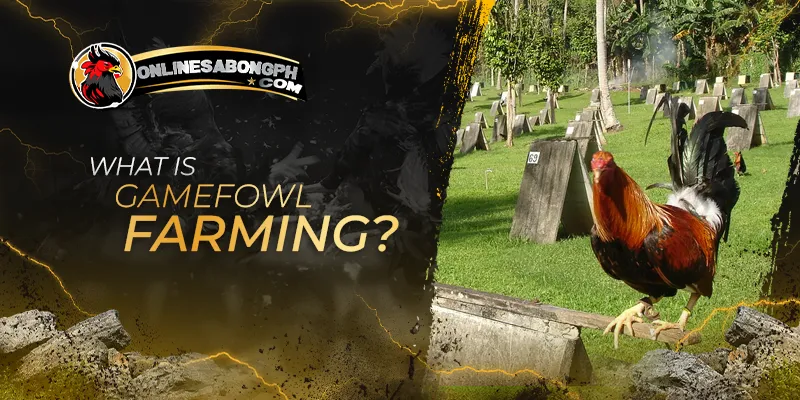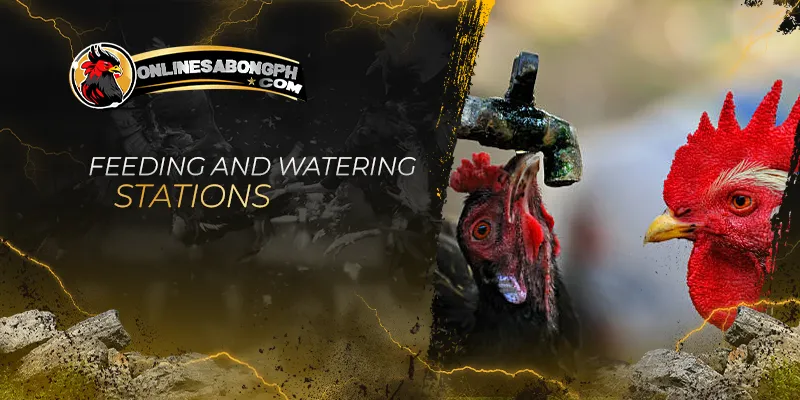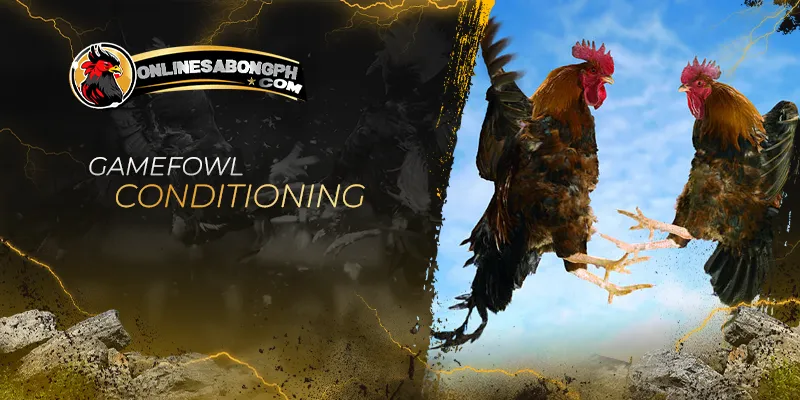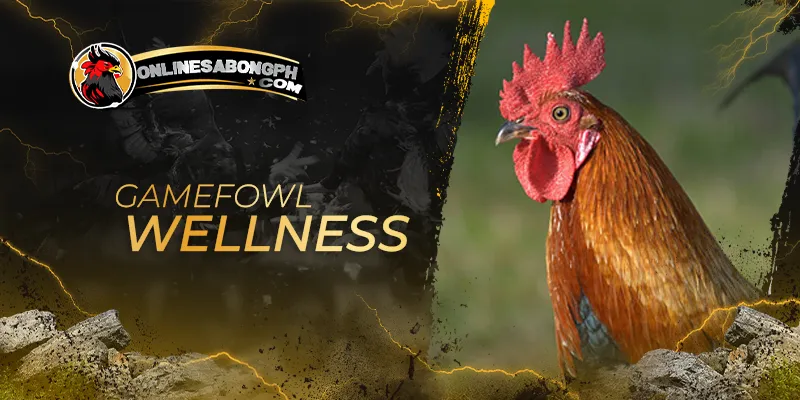Welcome to Online Sabong PH‘s guide on raising and training gamefowl! Gamefowls are unique roosters with a long history. Raising them well requires knowledge of breeding, feeding, and exercise. This guide will teach you everything to start your gamefowl farm and raise healthy, strong roosters . You’ll find helpful information here if you’re new to gamefowl or have some experience.
What is Gamefowl Farming?
Gamefowl farming involves breeding, raising, and conditioning gamefowl, a rooster breed known for its agility, strength, and beauty. This practice has ancient roots, and these roosters were historically prized for their competitive spirit. Popular gamefowl breeds include the American Game, Asil, Shamo, and many others, each possessing unique traits.
Setting Up Your Gamefowl Farm
Setting up your gamefowl farm requires careful thought about how much space your roosters need. Spacious enclosures for exercise and comfortable, secure housing are essential for their well-being.
Location
- Spacious Area: Choose a location with enough space to accommodate your desired number of roosters, their housing, and exercise areas.
- Ventilation: Excellent airflow is essential for rooster health and preventing respiratory issues.
- Natural Light: Sunlight is beneficial for the roosters but also provides shaded areas.
- Predator Protection: Secure your farm with sturdy fencing and other measures to keep out wild animals that could harm your roosters .
- Weather Protection: Ensure your structures withstand strong winds, rain, and extreme temperatures.
Housing
- Coops and Pens: Design well-built, secure coops or pens to house your roosters . Consider individual pens for breeding purposes and larger pens for groups of compatible roosters . Ensure proper sanitation and regular cleaning.
- Roosts: Provide elevated perches within the housing so your roosters can sleep comfortably.
Exercise Yards
- Open Spaces: Dedicate areas where your gamefowl can roam freely, promoting muscle development and overall fitness.
- Environmental Enrichment: Consider adding sand pits for dust bathing or perches at varying heights to provide stimulation and exercise opportunities.
Feeding and Watering Stations
Accessibility: Place feeding and watering stations in easily accessible locations for your roosters .
Cleanliness: Maintain extreme cleanliness of food and water containers to prevent disease spreading.
Nutrition: Provide a nutritionally balanced diet tailored to gamefowl, including grains, protein sources, and essential vitamins and minerals.
Additional Considerations
- Biosecurity: Implement strict hygiene measures to prevent the spread of disease.
- Veterinary Care: Establish a relationship with a veterinarian specializing in poultry for health checkups and consultations.
Gamefowl Nutrition and Health
Proper nutrition and proactive health management are the cornerstones of a successful gamefowl farm. Understanding a gamefowl’s dietary requirements and being vigilant about potential health issues will ensure your roosters remain in peak condition. Let’s dive into the details:
Gamefowl Nutrition
- Protein Power: Gamefowl needs a high-protein diet to build strong muscles, feathers, and tissues. Good protein sources include meat, fish, insects, or formulated gamefowl feed. Aim for a feed with around 20% protein content.
- Carbohydrates for Energy: Grains like corn, oats, and wheat provide carbohydrates for energy. However, balance carbohydrates to prevent excess weight gain that can hinder performance.
- Vitamins and Minerals: A balanced mix of vitamins and minerals keeps gamefowl healthy and supports functions like strong bones, immune response, and overall well-being. Supplement their diet with specific vitamins or look for pre-formulated feeds.
- Water: Always provide clean, fresh water. Dehydration can severely impact a bird’s health and performance.
Common Health Issues
- Respiratory Infections: Gamefowl are prone to respiratory problems like fowl pox or infectious bronchitis. Symptoms include nasal discharge, coughing, and difficulty breathing. Good ventilation, hygiene, and sometimes vaccinations can help prevent these.
- Parasites: Both internal (worms) and external (lice, mites) parasites can weaken gamefowl. Look for signs like ruffled feathers, weight loss, or diarrhea. Regular deworming and parasite control measures are essential.
- Nutritional Deficiencies: Imbalances in diet can lead to deficiencies in specific vitamins or minerals. This can cause problems like poor growth, weak bones, or feather issues.
Maintaining Gamefowl Health
- Hygiene: Clean housing, feeding areas, and water sources help minimize disease spread.
- Observation: Watch for behavior, appetite, or changes in droppings that might indicate a health problem.
- Regular Health Checks: Consult a veterinarian for routine checkups and advice on vaccinations and preventive care.
- Quarantine: Isolate new roosters or those showing signs of illness to prevent disease outbreaks.
What is Gamefowl Conditioning?
Gamefowl conditioning is a crucial aspect of raising these roosters for competition. It’s the key to unlocking their full potential and transforming them into powerful, enduring, and focused athletes. Here’s a breakdown of what it involves:
Getting Ready to Win: Conditioning is like an athlete training for a big competition. It’s all about making your gamefowl the strongest, fastest, and most focused they can be.
Not Just Exercise: Conditioning is a whole program. It includes special exercises to build muscle, the right foods for energy and strength, and keeping your roosters healthy and stress-free.
Parts of Conditioning:
Here are some key things involved in conditioning:
- Strength Training: Exercises to make legs, wings, and body powerful.
- Endurance Practice Activities to improve stamina so they take time to tire out.
- Sparring: Practicing fight moves (safely!) to sharpen skills and build confidence.
- Nutrition: A diet full of protein and other things they need to be at their best.
- Healthcare: Regular checkups and treatments to prevent sickness and keep them strong.
Why is Conditioning Important?
A well-conditioned gamefowl has a much better chance of performing well in competition. Conditioning helps them:
- Build Power: Develop strong muscles for powerful strikes.
- Last Longer: Improve their stamina to keep fighting without getting tired.
- Think Quickly: Become mentally sharp and focused during a fight.
Preparing your gamefowl for the rigors of competition starts with an intelligent pre-conditioning phase. Here’s what you need to keep in mind:
Pre-Conditioning Steps
- Health Check: Before starting intensive training, ensure your gamefowl is healthy. Address any underlying issues that could interfere with conditioning.
- Gradual Transition: Ease your roosters into their new conditioning routine and diet. Sudden changes can cause stress or digestive problems.
Conditioning Techniques
- Physical Training: Use exercises like flying pens, treadmills, or scratching in sandpits to build muscle and endurance.
- Mental Toughness: Expose roosters to new environments and situations to develop their confidence and ability to adapt.
Monitoring Progress
- Track Changes: Pay attention to how your roosters respond to training. Observe their weight, energy levels, and attitude.
- Adapt as Needed: If a rooster seems to be struggling or excelling, adjust their training program accordingly.
Feeding Schedules and Practices
A successful feeding strategy for your gamefowl is the foundation of their health, performance, and overall well-being. Here’s a breakdown of the critical practices to ensure your roosters thrive:
Consistency
Feed at the exact times each day
The Importance of Routine: Gamefowl have internal clocks that regulate their metabolism and energy levels. Consistent feeding times help align their bodily processes for optimal digestion and nutrient absorption.
How to Do It: Choose specific times each day (e.g., morning and evening) and stick to those as closely as possible. This predictability benefits the bird’s health and helps prevent them from becoming overly stressed or anxious at mealtimes.
Portion Control
Adjust feed quantities
The amount of feed a gamefowl needs depends on several factors. Overfeeding or underfeeding can both be detrimental to their well-being. Consider the following:
- Age: Younger roosters in their growth phases require more calories and protein for development, while mature roosters need less food overall.
- Size: Naturally, larger breeds have bigger appetites than smaller breeds.
- Activity Level: During intense conditioning, roosters expend more energy and need more significant portions than during rest or maintenance phases.
How to Measure:
Start with recommended amounts based on your bird’s characteristics, then monitor weight and body condition. Adjust portions up or down if the bird becomes too thin or heavy.
Supplementation: Integrate vitamins and minerals
A balanced gamefowl feed provides a strong foundation, but supplements can help address specific needs or deficiencies.
Joint Supplements
- Vitamin B complex: Supports energy metabolism and nerve function.
- Vitamin E: An antioxidant that protects cells and supports immunity.
- Calcium: Essential for strong bones and eggshell formation (in hens).
Expert Advice:
Consult your veterinarian or an experienced breeder about the best supplementation plan. They can advise on appropriate dosages and products suitable for gamefowl.
Gamefowl Health and Wellness
Maintaining the peak health of your gamefowl involves both proactive prevention and knowing how to respond to everyday health challenges. Let’s delve into the details:
Preventive Healthcare
The best way to manage disease is to prevent it from happening in the first place. Here’s how:
- Veterinarian Visits: Schedule regular checkups for your roosters . Even if they seem healthy, a vet can catch potential problems early and offer advice on overall health.
- Vaccinations: Vaccinate against diseases common in your area, as your vet advises.
- Parasite Control: Inspect your roosters regularly and prevent infestations of external parasites like lice and mites.
- Biosecurity: This means measures like isolating new roosters , cleaning and disinfecting equipment, and restricting visitors to your farm to minimize the chance of bringing in disease.
Handling Common Health Issues
Knowing what to look for helps you treat problems before they get out of hand. Common signs of illness include:
- Respiratory problems: Wheezing, coughing, discharge from eyes or nostrils.
- Digestive Issues: Changes in droppings (color, consistency), loss of appetite.
- Feather Loss: Excessive molting or broken, damaged feathers.
- Lethargy: Decreased energy, changes in behavior.
Before problems arise, know what you’ll do:
- DIY or Vet?: Some minor issues can be treated at home, while others require veterinary attention.
- Medication on hand: Talk to your vet about having a basic first-aid kit with standard treatments for gamefowl.
- Isolation: Have a separate area to quarantine sick roosters to prevent illness from spreading.
Conclusion
Raising and conditioning gamefowl takes a lot of knowledge and care. You’ve learned to provide your roosters with the best environment, food, and training. Always remember the importance of doing things ethically and keeping your roosters healthy and safe. By continuing to learn and putting your roosters first, you can be a successful and responsible gamefowl farmer.




